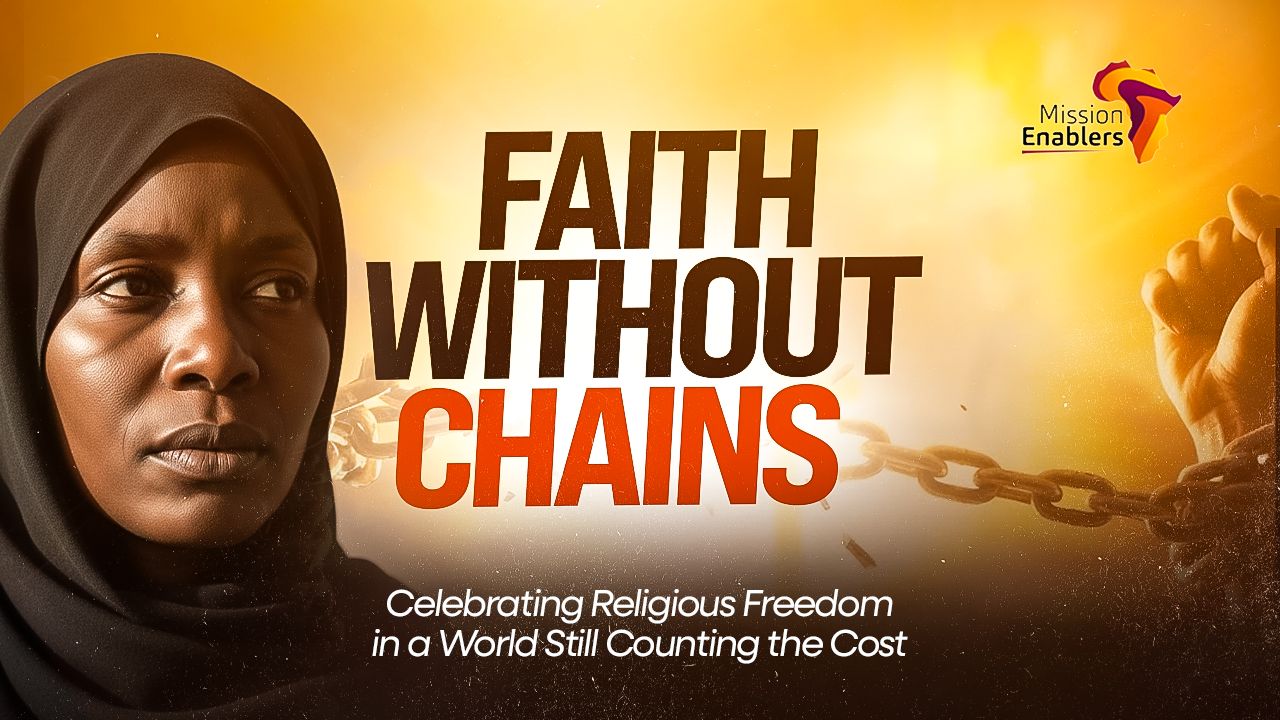Faith Without Chains
Faith Without Chains: Celebrating Religious Freedom in a World Still Counting the Cost
From the earliest pages of Scripture, faith has never advanced without resistance.
- Daniel prayed despite imperial decrees (Daniel 6).
- The apostles rejoiced that they were counted worthy to suffer for Christ (Acts 5:41).
- The early church multiplied not in safety, but under pressure (Acts 8:1–4).
Jesus Himself said:
“If the world hates you, keep in mind that it hated me first.”
John 15:18 (NIV)
Persecution is not a sign of gospel failure; it is often evidence of gospel impact.
For millions of Christians today, faith is still whispered in hidden rooms, Scriptures are memorized because Bibles are confiscated, and worship happens under threat. While we celebrate freedom in some places, others count the cost of following Jesus daily.
“Remember those in prison as if you were together with them in prison, and those who are mistreated as if you yourselves were suffering.”
Hebrews 13:3 (NIV)
The Gospel Has Always Moved Through Fire
Across the globe today, over 380 million Christians live in places where following Jesus brings high levels of persecution and discrimination. This means that one in every seven Christian is undergoing persecution in the world today.
Impact in Restricted Areas
Through WhatsApp and Telegram groups, audio bible and micro-discipleship is being delivered in more than 2000 languages to unreached people groups.
Of over 3.5 billion unreached people, about 20-40 million are reached on a monthly basis. Thus, these online groups help bring many to Christ on a daily basis despite physical bans.
On a positive note, many churches stream their services which is more popular among youths, thus bypassing physical barriers. The gospel also invades control-based regimes through the use of encrypted content. Even with almost half a billion persecuted Christians and 7400 unreached people groups, digital evangelism is accelerating the urgency of the Great Commission.
From underground house churches in restricted nations, to believers facing social exclusion, job loss, imprisonment, or death – the church is alive, courageous, and growing.
The gospel advances not because it is protected, but because Christ is risen.
Why Religious Freedom Matters to us at Mission Enablers Africa
Religious freedom is not merely a political concern, it is a missional catalyst.
When freedom exists:
- Churches disciple openly
- Missionaries train locally
- Scripture translates freely
- Communities encounter Christ publicly
When freedom is denied:
- The church goes underground
- Believers mature quickly
- Faith becomes costly – and often purer
In both spaces, God is at work.
Bold Faith in Fearful Times
To those rekindling their faith…
To those curious about Jesus but afraid…
To those wondering if the cost is too high…
Hear this truth: Jesus never promised safety, He promised presence.
“Surely I am with you always, to the very end of the age.”
Matthew 28:20 (NIV)
The call of Christ is not reckless, but it is resolute.
The same Spirit who strengthens persecuted believers strengthens you.
MISSIONS AFFIRMATION
Say this aloud or meditate prayerfully:
I belong to Christ.
His gospel is worth my life.
I will not live silent when others suffer for His name.
I carry light into darkness with courage, compassion, and obedience.
The mission of God moves through me – now.
Remember this, that even in the midst of persecution and fear, we can pray. Prayer births boldness, it fuels the spread of the gospel and it invites the power and presence of God into fearful situations Acts 4:23-31.
A PRAYER FOR THE PERSECUTED & THE CALLED
Lord Jesus,
We remember our brothers and sisters who worship in fear today.
Strengthen them. Shield them. Sustain them.
Give us hearts that do not look away.
Give us courage that obeys without compromise.
Send us – through prayer, through giving, through going.
May Your kingdom come in every nation.
In Jesus’ name, Amen.
At Mission Enablers Africa, we pray for Missions all over the world and the persecuted every Thursday by 9pm GMT+1.
By Oluwatomilola Ikumapayi





